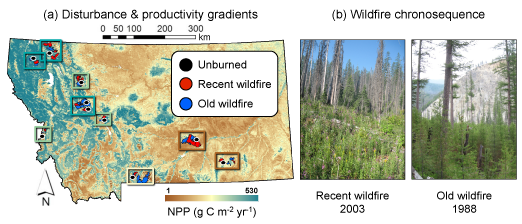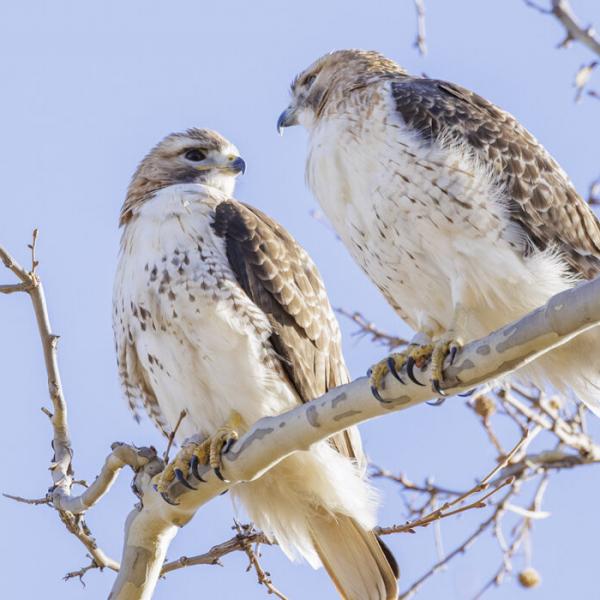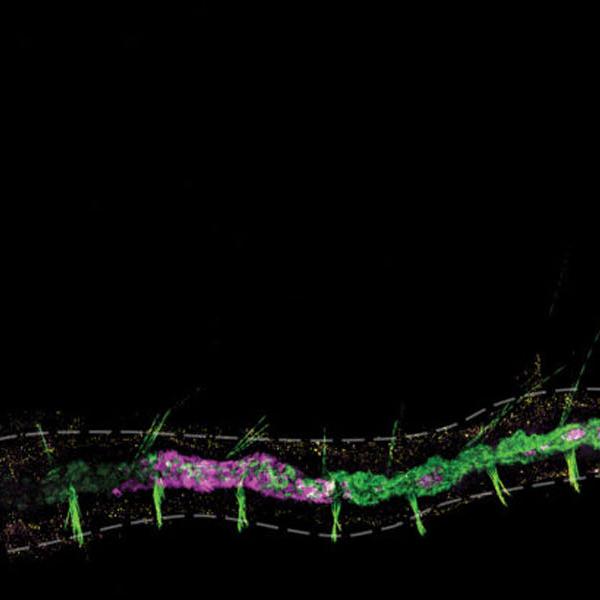Receives new collaborative NSF grant to study ecological drivers of plant-pollinator biodiversity across scales
Jonathan Myers, assistant professor of biology in Arts & Sciences, and collaborators received a three-year, $700,000 grant from the National Science Foundation for their research titled “Collaborative Research: Disturbance and productivity as drivers of plant-pollinator diversity and function across scales." The interdisciplinary research team includes PI Jonathan Myers (plant community ecology), PI Laura Burkle (plant-pollinator ecology) at Montana State University, and co-PI Travis Belote (fire ecology and management) at The Wilderness Society in Bozeman, Montana.
Project Abstract:
Despite the importance of wildfires in natural ecosystems, neither ecologists nor land managers fully understand how wildfire shapes biodiversity and ecosystem services across natural landscapes that vary in productivity. In this collaborative project, three early-career investigators will integrate field sampling, experiments, and modeling to understand how wildfires influence plant-pollinator networks in the Northern Rocky Mountains. The study will extend local plant-pollinator dynamics to regional scales across a productivity gradient, and will leverage a 30-year record of wildfires to investigate dynamics over longer periods than are possible using short-term experiments (figure below). The combination of broad spatial analyses with longer temporal records will provide unique insights into how wildfire shapes biodiversity and important ecosystem services across complex landscapes.
Billions of dollars are spent annually to suppress wildfires to protect the livelihoods of human societies within fire-prone landscapes. Simultaneously, huge investments are devoted to restoring fire without clear understanding of how it influences ecological interactions and the essential ecosystem services they provide. Results from this project will directly inform forest management programs to optimize biodiversity and ecosystem function across complex environmental gradients. Courses in fire ecology and null models, a special session of the Montana Forest Restoration Committee, and mentorship of Hopa Mountain Native Science Fellows are planned in order to bring together diverse perspectives in ecology, management, policy, and native cultures. Students and a post-doctoral researcher will be involved in both research and outreach with government agencies, land managers, and the public. Together, this interdisciplinary team is poised to build relationships critical for solving some of the most pressing environmental issues at the interface of ecology and society.

Caption: A biogeographically replicated study designed to untangle the complex effects of net primary productivity (NPP), wildfire disturbance, and regional species diversity on plant and pollinator communities across spatial and temporal scales in the Northern Rockies of Montana.




